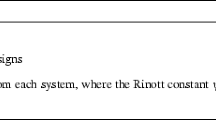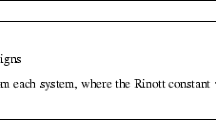Abstract
Simulation-optimization is instrumental to solve stochastic problems with complexity. Over the past half-century, simulation-optimization methods have progressed theoretically and methodologically across different disciplines. The majority of commercial simulation packages - to some degree - offer an optimizer that allows decision-makers to conveniently determine an optimal or near-optimal system design. With the latest advancements in simulation techniques, such as data-driven modeling and Digital Twins, optimizer platforms need a redesign to include new capabilities. This paper proposes a Data-driven Simulation-Optimization (DSO) platform to narrow this gap. By considering data-tables as a decision variable (control), DSO can systematically generate new tables, run experiments, and determine the best table entries to optimize the model. To implement DSO, three software packages (MATLAB, Simio, and MS Excel) are integrated via a customized coded interface, called Simio-API. The applicability of this Simulation-optimization tool is tested in two experimental settings to evaluate its effectiveness and provide some insights for future extensions. The DSO initial results are promising and should stimulate further research in academia and industry.
Access this chapter
Tax calculation will be finalised at checkout
Purchases are for personal use only
Similar content being viewed by others
References
Figueira, G., Almada-Lobo, B.: Hybrid simulation-optimization methods: a taxonomy and discussion. Simul. Modell. Pract. Theory Simul.-Optim. Complex Syst.: Methods Appl. 46, 118–134 (2014). ISSN 1569-190X. https://doi.org/10.1016/j.simpat.2014.03.007, http://www.sciencedirect.com/science/article/pii/S1569190X14000458. Accessed 29 May 2016
Amaran, S., Sahinidis, N.V., Sharda, B., Bury, S.J.: Simulation optimization: a review of algorithms and applications. 4OR 12(4), 301–333 (2014). http://link.springer.com/article/10.1007/s10288-014-0275-2. Accessed 01 May 2017
Smith, J.S., Sturrock, D.T., Kelton, W.D.: Simio and Simulation: Modeling, Analysis, Applications: 4th Edition - Economy, English, 4 edn. CreateSpace Independent Publishing Platform (2017). ISBN 978-1-5464-6192-0
Carson, Y., Maria, A.: Simulation optimization: methods and applications. In: Conference Proceedings, pp. 118–126. IEEE Computer Society (1997)
Fu, M.C., Henderson, S.G.: History of seeking better solutions, AKA simulation optimization. In: 2017 Winter Simulation Conference (WSC), pp. 131–157. IEEE (2017)
Ólafsson, S., Kim, J.: Simulation optimization. In: Proceedings of the Winter Simulation Conference, vol. 1, pp. 79–84. IEEE (2002)
Dehghanimohammadabadi, M., Kabadayi, N.: A two-stage AHP multi- objective simulation optimization approach in healthcare. Int. J. Anal. Hierarchy Process 12(1), 117–135 (2020)
Azadeh, A., Ahvazi, M.P., Haghighii, S.M., Keramati, A.: Simulation optimization of an emergency department by modeling human errors. Simul. Modell. Pract. Theory 67, 117–136 (2016)
Rezaeiahari, M., Khasawneh, M.T.: Simulation optimization approach for patient scheduling at destination medical centers. Expert Syst. Appl. 140, 112 881 (2020)
Seif, J., Dehghanimohammadabadi, M., Yu, A.J.: Integrated preventive maintenance and flow shop scheduling under uncertainty. Flex. Serv. Manuf. J. 32, 852–887 (2020). https://doi.org/10.1007/s10696-019-09357-4
Aiassi, R., Sajadi, S.M., Molana, S.M.H., Babgohari, A.Z.: Designing a stochastic multi-objective simulation-based optimization model for sales and operations planning in built-to-order environment with uncertain distant outsourcing. Simul. Modell. Pract. Theory 104, 102103 (2020)
Amiri, F., Shirazi, B., Tajdin, A.: Multi-objective simulation optimization for uncertain resource assignment and job sequence in automated flexible job shop. Appl. Soft Comput. 75, 190–202 (2019)
Drenovac, D., Vidović, M., Bjelić, N.: Optimization and simulation approach to optimal scheduling of deteriorating goods collection vehicles respecting stochastic service and transport times. Simul. Modell. Pract. Theory 103, 102 097 (2020)
Kabadayi, N., Dehghanimohammadabadi, M.: Multi-objective supplier selection process: a simulation-optimization framework integrated with MCDM. Ann. Oper. Res. 319, 1607–1629 (2022). https://doi.org/10.1007/s10479-021-04424-2
Vieira, A.A., Dias, L., Santos, M.Y., Pereira, G.A., Oliveira, J.: Are simulation tools ready for big data? Computational experiments with supply chain models developed in Simio. Proc. Manuf. 42, 125–131 (2020)
Goodarzian, F., Hosseini-Nasab, H., Muñuzuri, J., Fakhrzad, M.-B.: A multi-objective pharmaceutical supply chain network based on a robust fuzzy model: a comparison of meta-heuristics. Appl. Soft Comput. 92, 106 331 (2020)
Swain, J.J.: Simulated worlds. OR/MS Today 42(5), 36–49 (2015)
Laguna, M.: Optimization of Complex Systems with OptQuest. A White Paper from OptTek Systems Inc. (1997)
Hein, D.L., Harrell, C.R.: Simulation modeling and optimization using ProModel. In: 1998 Winter Simulation Conference. Proceedings (Cat. No. 98CH36274), vol. 1, pp. 191–197. IEEE (1998)
Juan, A.A., Faulin, J., Grasman, S.E., Rabe, M., Figueira, G.: A review of simheuristics: extending metaheuristics to deal with stochastic combinatorial optimization problems. Oper. Res. Perspect. 2, 62–72 (2015)
Xu, J., Huang, E., Hsieh, L., Lee, L.H., Jia, Q.-S., Chen, C.-H.: Simulation optimization in the era of industrial 4.0 and the industrial internet. J. Simul. 10(4), 310–320 (2016)
Jian, N., Freund, D., Wiberg, H.M., Henderson, S.G.: Simulation optimization for a large-scale bike-sharing system. In: 2016 Winter Simulation Conference (WSC), pp. 602–613. IEEE (2016)
Pegden, C.D.: Introduction to SIMIO. In: 2008 Winter Simulation Conference, pp. 229–235. IEEE (2008)
Sturrock, D.T.: Traditional simulation applications in industry 4.0. In: Gunal, M.M. (ed.) Simulation for Industry 4.0. SSAM, pp. 39–54. Springer, Cham (2019). https://doi.org/10.1007/978-3-030-04137-3_3
Jules, G., Saadat, M., Saeidlou, S.: Holonic goal-driven scheduling model for manufacturing networks. In: 2013 IEEE International Conference on Systems, Man, and Cybernetics, pp. 1235–1240. IEEE (2013)
Dehghanimohammadabadi, M.: Iterative optimization-based simulation (IOS) with Predictable and unpredictable trigger events in simulated time. Ph.D. thesis, Western New England University (2016). http://gradworks.umi.com/10/03/10032181.html. Accessed 30 May 2016
Dehghanimohammadabadi, M., Keyser, T.K.: Intelligent simulation: integration of SIMIO and MATLAB to deploy decision support systems to simulation environment. Simul. Modell. Pract. Theory 71, 45–60 (2017). http://www.sciencedirect.com/science/article/pii/S1569190X16301356. Accessed 17 Dec 2016
Sturrock, D.T.: Using commercial software to create a digital twin. In: Gunal, M.M. (ed.) Simulation for Industry 4.0. SSAM, pp. 191–210. Springer, Cham (2019). https://doi.org/10.1007/978-3-030-04137-3_12
Kennedy, J., Eberhart, R.: Particle swarm optimization. In: Proceedings of ICNN 1995-International Conference on Neural Networks, vol. 4, pp. 1942–1948. IEEE (1995)
Shaheen, M.A., Hasanien, H.M., Alkuhayli, A.: A novel hybrid GWOPSO optimization technique for optimal reactive power dispatch problem solution. Ain Shams Eng. J. 12, 621–630 (2020)
Usman, M., Pang, W., Coghill, G.M.: Inferring structure and parameters of dynamic system models simultaneously using swarm intelligence approaches. Memetic Comput. 12(3), 267–282 (2020)
Park, K.: A heuristic simulation-optimization approach to information sharing in supply chains. Symmetry 12(8), 1319 (2020)
Author information
Authors and Affiliations
Corresponding author
Editor information
Editors and Affiliations
Appendix A
Appendix A
Particle Swarm Optimization or PSO is a population-based Metaheuristic algorithm developed by Kennedy and Eberhart in 1995 [27] PSO is a swarm-based algorithm and by moving particles in a specific exploration field [28]. Due to its effective balancing of exploration and exploitation [29], PSO has been widely used in the development of Simheuristic models and in solving SO problems. Recent examples include using PSO to deal with stochastic models in supply chain management [30], healthcare systems [31], and manufacturing [32]. The general pseudocode of PSO is shown in Algorithm 2.

Rights and permissions
Copyright information
© 2022 The Author(s), under exclusive license to Springer Nature Switzerland AG
About this paper
Cite this paper
Dehghanimohammadabadi, M. (2022). Data-Driven Simulation-Optimization (DSO): An Efficient Approach to Optimize Simulation Models with Databases. In: Dorronsoro, B., Pavone, M., Nakib, A., Talbi, EG. (eds) Optimization and Learning. OLA 2022. Communications in Computer and Information Science, vol 1684. Springer, Cham. https://doi.org/10.1007/978-3-031-22039-5_10
Download citation
DOI: https://doi.org/10.1007/978-3-031-22039-5_10
Published:
Publisher Name: Springer, Cham
Print ISBN: 978-3-031-22038-8
Online ISBN: 978-3-031-22039-5
eBook Packages: Computer ScienceComputer Science (R0)




